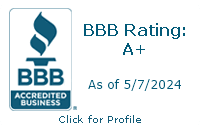Real estate transactions have been a prime target of cybercrime over the past decade, and there is little sign of change in this focus on vacant property scams, even as the housing market slows. Instead, fraudsters continue to evolve their scam and money laundering tactics to avoid detection.
The latest trend involves vacant lots or unencumbered properties. These scams involve bad actors posing as owners of these vacant lots or properties.
Here’s how these new vacant property scams work
- Public records searches identify real estate free of mortgage or other liens. These often include vacant lots or rental properties. The identity of the landowner is also obtained through this public records search.
- Posing as the property owner the scammer contacts a real estate agent to list the property for sale. All communications are through email and digital means and not in person.
- The property’s listing price is typically below the current market value to generate immediate interest.
- The scammer quickly accepts the offer with a preference for cash sales.
- At the time of closing, the scammer refuses to sign documents in person and requests a remote notary signing. The scammer impersonates the notary and returns falsified documents to the title company or closing attorney involved in the transaction.
- The title company or closing attorney transfers the closing proceeds to the scammer.
- The fraud is typically not discovered until the recording of transferring documents with the applicable county.
All title companies should protect themselves and their clients from this latest property scam by doing the following:
- Independently search for the identity.
- Request an in-person or virtual meeting to see their government-issued identification.
- Be alert with a seller accepting an offer price below market value in exchange for the buyer paying cash and closing quickly.
- Never allow a seller to arrange their notary closing. Use a trusted title company or closing attorney to coordinate the closing documents and funds exchange.
Contact National Title Agency Today To Start Your Journey!


